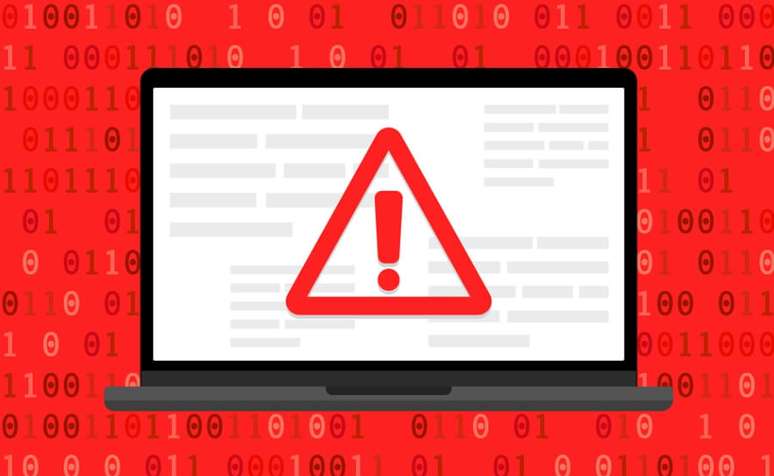With technology, scams have become more sophisticated and, of course, they are changing
Financial scams have always existed. A few decades ago they occurred with forged checks and signatures, with false contracts or with never paid credit purchases. With technology, scams have become more sophisticated and, of course, they are changing, precisely because they become known and therefore lose their strength, after all their success depends on catching the victim by surprise and also on acting quickly to negotiate the resources , before it’s time to think.
Discover the ten most popular scams of the moment:
Fake invoice scam
Scammers send fake bank receipts to victims, usually very similar to legitimate invoices. These can be sent via email, post or even delivered in person.
How to avoid: Always check all the details on the invoice, such as the name of the beneficiary and the bank number. Avoid paying invoices received via email unless you are expecting them and you know the sender.
What to do if you are a victim: Notify your bank immediately and ask for guidance on next steps. File a police report.
Online buying and selling scam
Fake sellers or buyers on auction or classifieds sites who do not deliver the item or send counterfeit items.
How to avoid: Use secure and traceable payment methods. Avoid direct bank transfers to strangers.
What to do: Report it to the purchase or sale site and look for a law firm specializing in financial, banking and digital law to assist you.
Fake investments
It offers investment opportunities that promise high returns with little or no risk.
How to avoid: Research the company or individual offering the investment. Be wary of promises of quick and high returns.
What to do: Inform your financial institution and look for a law firm specializing in financial, banking and digital law to assist you.
Credit card scam
Request card details for a free service and then make unauthorized charges.
How to avoid: Please read the terms and conditions before providing your card details. Check your bank statements regularly.
What to do: Notify your bank or credit card company immediately and ask them to reverse the fraudulent charges.
Financial pyramid
Schemes that rely on recruiting multiple people to invest money, without an underlying legitimate product or service.
How to avoid: Be wary of programs that offer profits based on the number of people hired and are not transparent about actual investments or sales of goods or services.
What to do: Stop investing in the program and look for a law firm specializing in financial, banking and digital law to help you.
Inheritance scam
They tell you that you inherited money from a distant relative, but you have to pay taxes or fees to claim it.
How to avoid: If you don’t know of any relatives who have left an inheritance, it’s probably a scam. Never pay your taxes upfront.
What to do: If you have paid, contact your financial institution to try to cancel the transaction. Report the scam to the authorities.
Rental scam
Advertise properties for rent at very low prices to attract victims. After receiving the deposit or advance rent, the scammer disappears.
How to avoid: Always inspect the property in person before making any payments. Be wary of rents that are much lower than the market price.
What to do: Report it to the police and to the website where the advert was posted. Contact your financial institution to attempt to cancel the transaction.
Phishing
Attempts to obtain personal information, such as passwords and credit card numbers, through fake emails or messages imitating legitimate companies.
How to avoid: Never click on links in suspicious emails. Always check the return address and, if in doubt, contact the company mentioned directly.
What to do: Change all affected passwords immediately. Report your bank and monitor your accounts for suspicious activity. Consider filing a police report.
Tech support scam
Scammers claim to be from a well-known technology company and tell you that your computer has a virus. They request remote access to your computer and then install malware or steal information.
How to avoid: Never allow remote access to your computer to strangers. Legitimate companies will not proactively call offering unsolicited technical support.
What to do: Disconnect from the internet and run a full malware scan. Change all passwords and monitor your accounts for suspicious activity. Report it to the police.
Lottery scam
They inform you that you have won a large sum of money in an international lottery, but that you have to pay a fee to claim it.
How to avoid: If you haven’t signed up for a lottery, it’s likely a scam. Never pay fees upfront to claim rewards.
What to do: If you have paid, contact your financial institution to try to cancel the transaction. Report the scam to the authorities.
Remember if: Whenever you invest, look for a specialized law firm to carry out due diligence. And never give out personal or financial information unless you are sure it is safe to do so.
He is a lawyer specializing in financial markets and digital law.
Source: Terra
Rose James is a Gossipify movie and series reviewer known for her in-depth analysis and unique perspective on the latest releases. With a background in film studies, she provides engaging and informative reviews, and keeps readers up to date with industry trends and emerging talents.





-qy258ecdoj1f.png)


